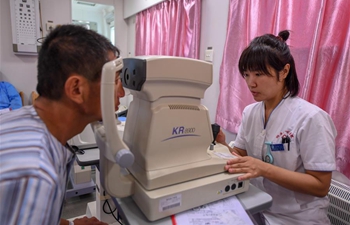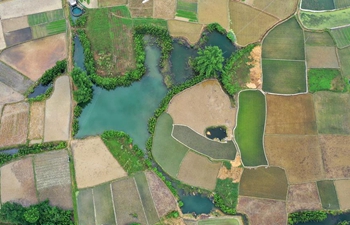NAIROBI, July 24 (Xinhua) -- Kenya Medical Research Institute (KEMRI) on Wednesday launched an inventory that captures the geographical distribution of public health facilities in 50 African countries.
The inventory contains information on geographical location of 98,745 public health facilities managed by governments, local authorities and charitable organizations.
KEMRI said in a statement the new data bank on public health facilities' distribution in Africa will boost provision of medical services in a continent grappling with infectious and lifestyle diseases.
"This new dataset is important because it locates health facilities in relation to the communities they are intended to serve," said KEMRI.
The location of health facilities forms a key cornerstone for health system planning by ensuring that the right services are accessible to the right populations and that no one is marginalized from essential services, it added.
KEMRI partnered with international research entities to develop the database capturing geographical distribution of public health facilities in relation to socio-economic status of populations they serve.
The inventory will help African governments and multilateral partners improve the capacity of these health facilities funded by the tax payer to deliver quality services.
Researchers said the first comprehensive spatial inventory of public health facilities in Sub-Saharan Africa will be a game changer in efforts to achieve universal health coverage.
"The database will be useful across numerous domains for evaluating public health sector delivery and optimizing health care to evaluating emergence of epidemic pathogens," said Emelda Okiro, head of population health unit at KEMRI-Wellcome Trust Research Program.
She said that availability of a data bank on all public health facilities in Africa will inform formulation of policies that promote equity and affordability in the provision of healthcare services.
"The database will be an invaluable resource tool for governments in their quest to provide universal health coverage," said Okiri, adding that updated data is key to inform financing of health care services.













